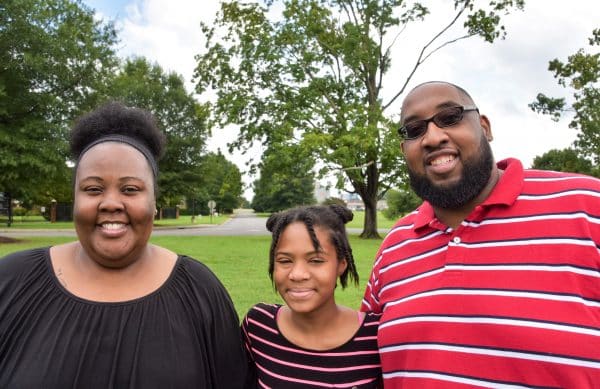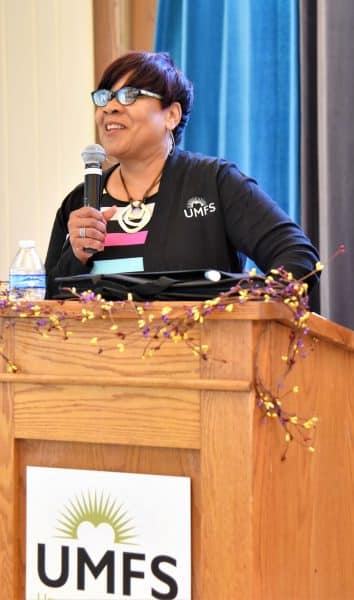The following is an interview with Adalay Wilson, Vice President of Programs at UMFS. She’s been with the agency since 1989. Through the Kinship Care program, Adalay and her team are helping youth in the foster care system connect with extended family and other close supports.
What is Kinship Care?
Adalay: Kinship Care describes the full-time care, nurturing, and protection of children by people who are connected to them, either by birth or blood or relationship, but who are not their parents. For any number of reasons, these children are being cared for by someone who knows them, who has a connection to them, and who is not a stranger.
Does Kinship Care provide the same resources as traditional foster care?
Adalay: Yes, Kinship Care allows relatives who take their family members’ children out of the foster care system to receive financial support and case-management services when they become legal guardians. The program provides an option for teenagers — the age group most likely to be eligible — to exit the foster care system and enter into a permanent living arrangement when adoption is not the best option. Kinship Care also helps children maintain relationships with family.
Sometimes extended families fall out of touch with one another. How might someone be alerted that they have kin in the foster care?
Adalay: There about 104,000 children in the United States in foster care who live with a relative. When a child comes into care, states are responsible for providing notification to relatives. Leaving your family situation is very traumatic, so we want to do what we can to reduce that trauma. Many times in regular foster care, keeping siblings together could depend on space, but those types of issues are often negated when talking about families. Research tells us kids placed with relatives have fewer behavioral issues and are less likely to be on psychotropic medications because they don’t have to worry about losing connections with familiar ties, changing schools, or changing communities. There are many reason Kinship Care is the right thing to do.
Is Kinship Care a new program?
Adalay: Kinship Care is not new historically. Families have always stepped up to the plate when kids have come into foster care. Plenty of families take care of relatives without any assistance whatsoever. One of the things that we have seen more recently is that funds are being made available to supplement the care of kids who are needing foster care; basically allocating some of the same funding that we spend on foster care anyway and diverting those funds so that an actual family member can benefit from it. That was not an option in years past.

Pictured in 2019, Sherrika and George adopted Cierra (Sherrika’s cousin) through Kinship Care. To date, UMFS has placed 11 youth through Kinship Care and two placements are pending. You can read more about Sherrika and George’s inspiring story by clicking here.
What types of resources are available to Kinship Care families?
Adalay: There are resources that families might not be aware of for families taking care of kin, whether they’re in foster care or not. In Virginia, there are kinship navigators, and those kinship navigators are responsible for educating kin about the resources that are available, whether it’s financial (TANF financial) or CHIP (medical). There are a wealth of resources out there. The average age of adults raising kin is 50 or older, so they need additional support. We spend an inordinate amount of money on kids in the foster care system. So if we are to take those same dollars and spend say one year providing assistance to someone’s relative until the child can move to adoption, that’s a relatively short time of support. And we couldn’t even begin to put a price tag on the value this has on the health and well-being of the child.
For more information about Kinship Care, foster care, and adoption, please call 855.367.8637.
